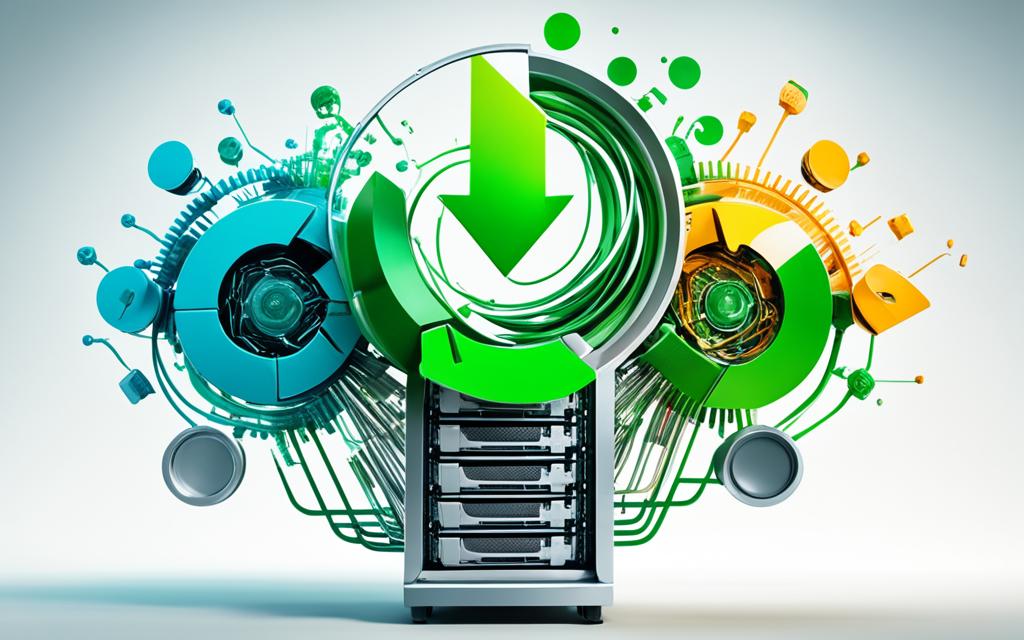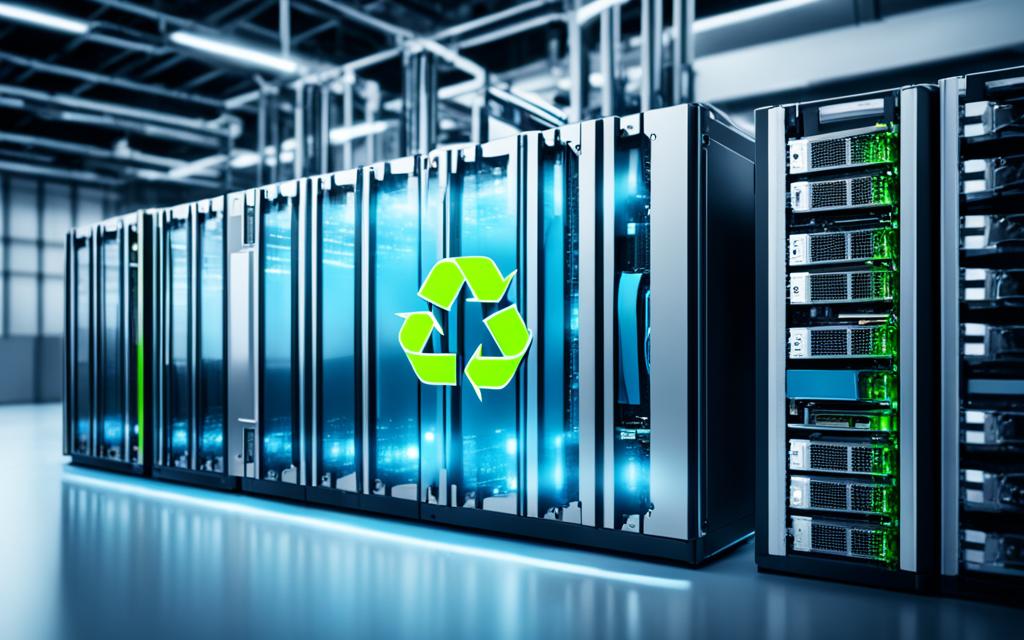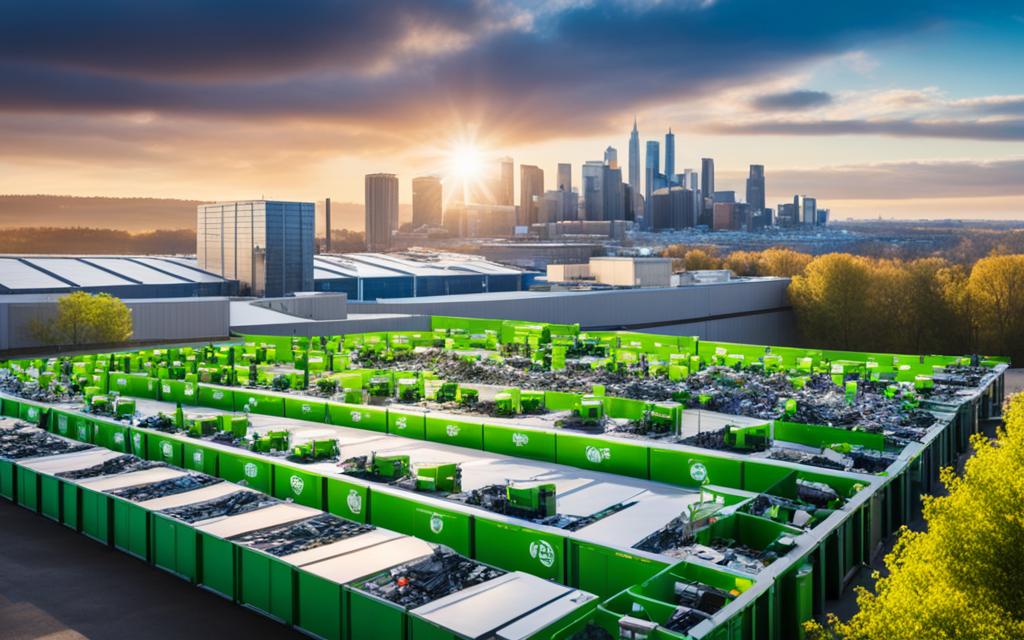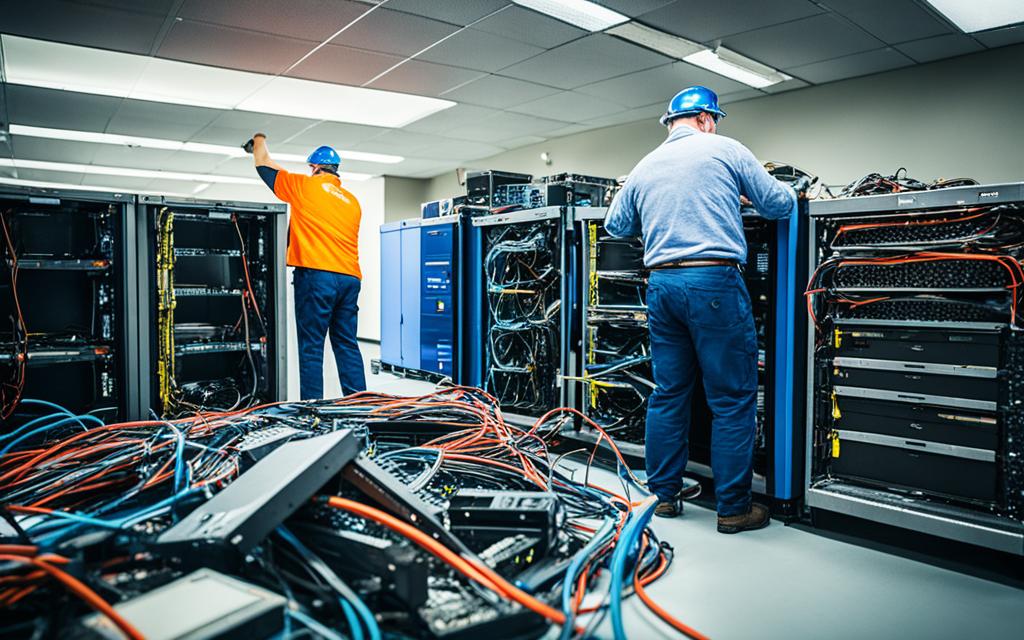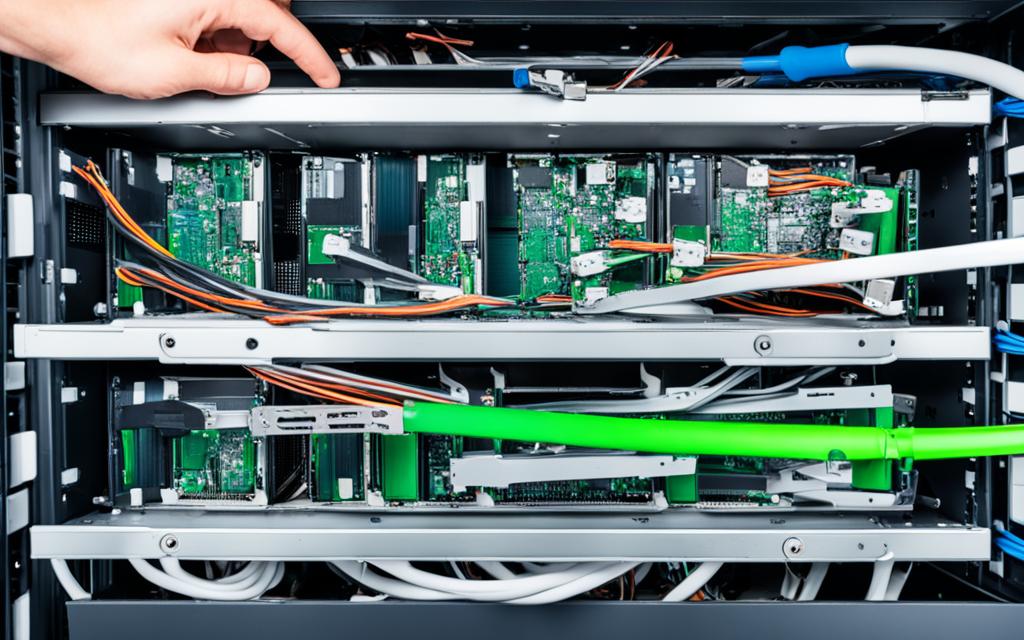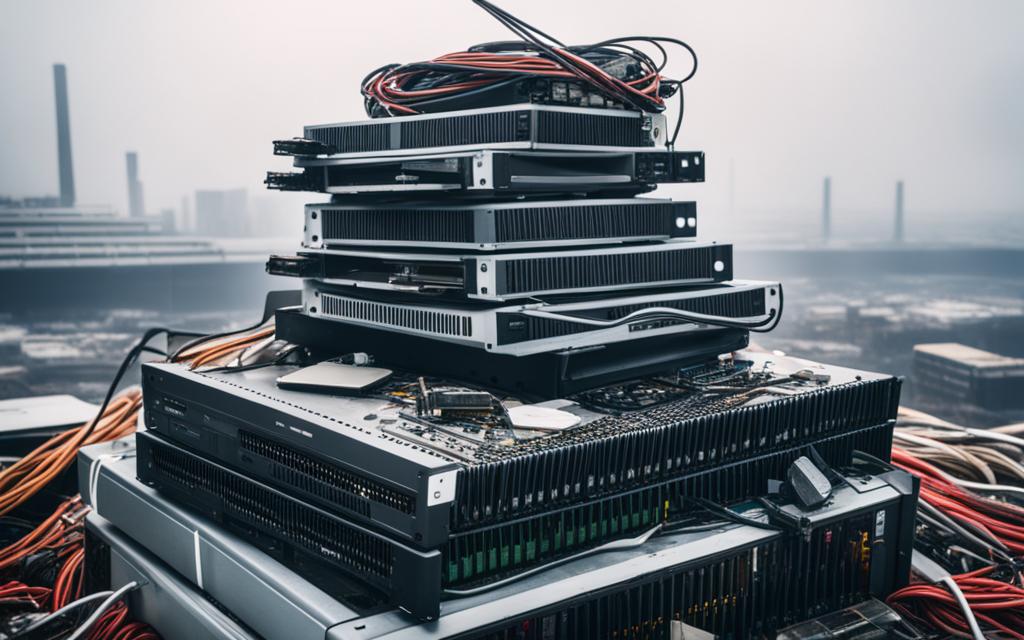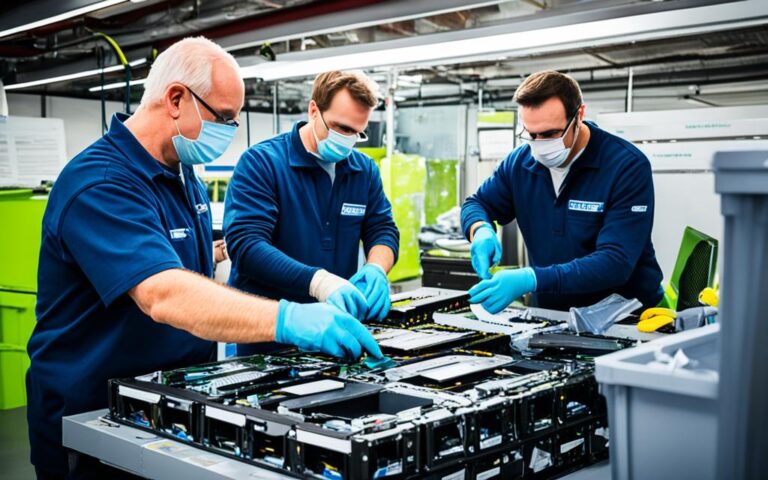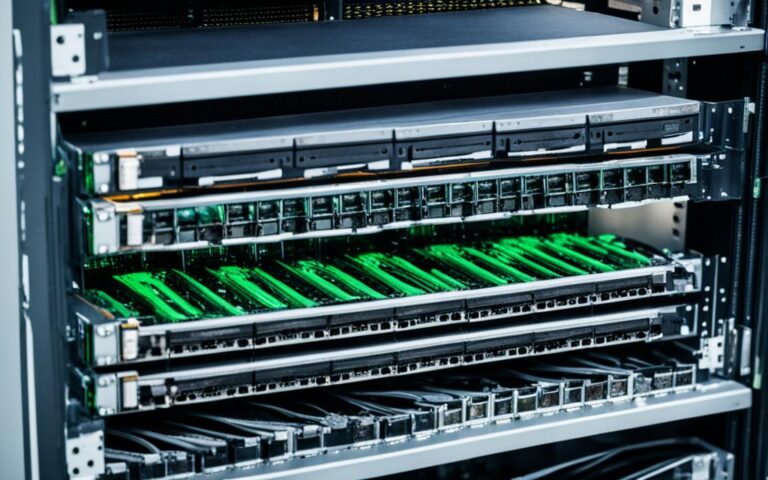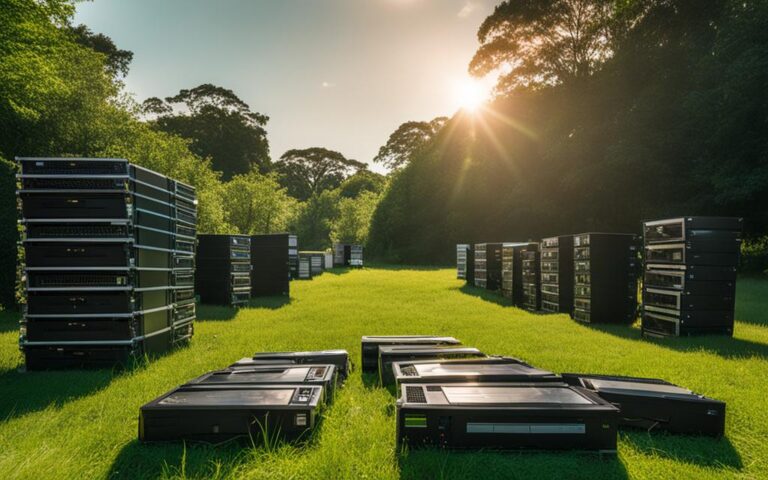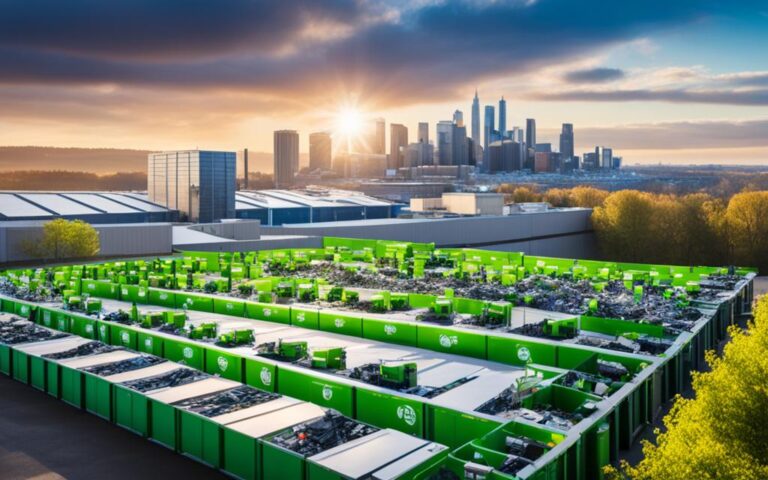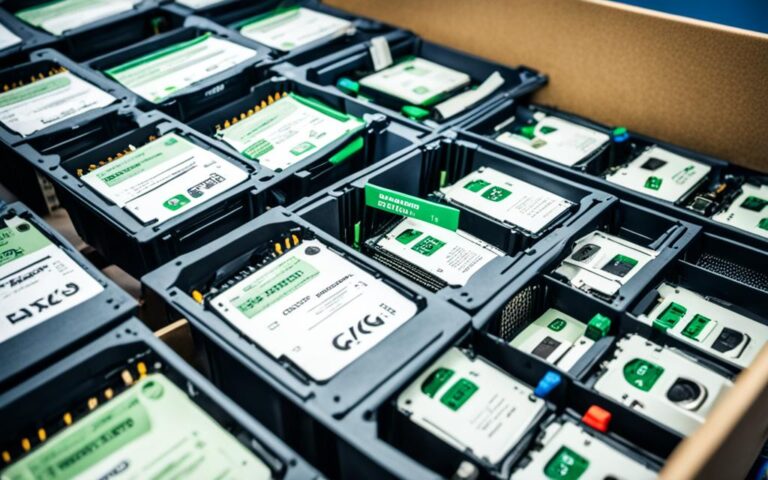The Benefits of Server Component Upcycling
Upgrade your outdated tech and unlock its hidden potential. Server component upcycling is not just a smart financial move; it’s also a powerful way to protect the environment. Rather than discarding your old servers, consider repurposing their components to create valuable assets. Upcycling allows you to maximize the value of your existing hardware, saving your finances and reducing electronic waste. By breathing new life into outdated technology, you can make a positive impact on both your bottom line and the planet.
Be a responsible steward of both your finances and the environment by embracing server component upcycling. Join the movement towards a sustainable future where valuable assets and environmental consciousness go hand in hand.
The Importance of Responsible Server Decommissioning
Responsible server decommissioning is crucial for implementing sustainable IT practices. When it comes to managing the end-of-life of servers, organizations have several options to choose from. They can extend the service life of servers through upgrades, reuse components in other systems, or recycle servers to recover valuable materials. By adopting responsible server decommissioning practices, organizations can promote sustainability, meet their corporate social responsibility goals, and contribute to the circular economy.
Extending the service life of servers not only saves costs but also reduces the environmental impact associated with manufacturing new servers. By choosing to upgrade and optimize existing servers, businesses can maximize their return on investment while minimizing their carbon footprint. Furthermore, reusing components in other systems not only reduces electronic waste but also saves valuable resources and energy that would otherwise be required to produce new components.
Recycling servers is another important aspect of responsible decommissioning. By recycling servers, organizations can recover and repurpose valuable materials, contributing to a more resource-efficient and sustainable IT landscape. Proper recycling practices ensure the responsible disposal of electronic waste, reducing the environmental impact of hazardous materials and conserving natural resources.
“Responsible server decommissioning practices are crucial for businesses to uphold their corporate social responsibility and minimize their environmental footprint.” – Jane Stevens, IT Sustainability Expert
Responsible server decommissioning is not only beneficial for individual organizations but also for the wider community and the planet. By adopting sustainable IT practices, businesses can contribute to a more circular economy, where resources are conserved, waste is minimized, and the environmental impact is reduced.
Companies that prioritize responsible server decommissioning demonstrate their commitment to corporate social responsibility, sustainability, and environmental stewardship. Moreover, implementing sustainable IT practices can enhance brand reputation, attract environmentally conscious customers, and align with the expectations of stakeholders who value ethical business practices.
In summary, responsible server decommissioning is essential for sustainable IT practices and corporate social responsibility. By extending the service life of servers, reusing components, and recycling servers, organizations can save costs, reduce electronic waste, conserve resources, and contribute to a greener IT landscape. Embracing responsible server decommissioning practices is a win-win situation, benefitting both businesses and the environment.
The Impact of Responsible Server Decommissioning
Responsible server decommissioning has a significant impact on the environment and society. By adopting sustainable IT practices, organizations can:
- Reduce electronic waste and its harmful effects on the environment
- Conserve natural resources and minimize the need for new server manufacturing
- Promote a circular economy by reusing components and recovering valuable materials
- Minimize carbon footprint and energy consumption
- Uphold corporate social responsibility goals and enhance brand reputation
By taking responsibility for the end-of-life of servers, organizations can make a positive contribution towards a more sustainable future.
The Role of Manufacturers in Sustainable Decommissioning
Manufacturers play a crucial role in promoting sustainable decommissioning practices for servers. They have the power to shape the future of server technology by implementing eco-design principles that prioritize recyclability and minimize waste. By focusing on eco-design, manufacturers can contribute to a more circular economy where resources are conserved and waste is minimized.
One of the key aspects of eco-design is ensuring that server components are easily disassembled and recycled. This allows for the efficient extraction of valuable materials and reduces the environmental impact of decommissioned servers. When manufacturers design products with recyclability in mind, they enable the creation of closed-loop value chains, where components can be upcycled or downcycled instead of ending up in landfills.
Manufacturers should strive to create environmentally-friendly products that support the sustainable decommissioning of servers. This means considering the full life cycle of their products and taking responsibility for their environmental impact. By implementing sustainable practices and creating products that prioritize recyclability, manufacturers can make a significant impact on reducing electronic waste.
Sustainable decommissioning practices require the active involvement of manufacturers who play a crucial role in designing products that support the circular economy and minimize waste.
By embracing eco-design and focusing on recyclability, manufacturers can help drive the adoption of sustainable decommissioning practices. They can contribute to a greener future by reducing electronic waste and conserving valuable resources.
In the next section, we will explore the benefits of IT equipment upcycling and how it contributes to environmental sustainability and supports local businesses.
The Benefits of IT Equipment Upcycling
IT equipment upcycling offers numerous benefits for environmental sustainability and support for local businesses. By choosing to upcycle IT equipment, individuals and businesses can reduce electronic waste, extend the lifespan of electronic devices, and promote a circular economy.
Upcycling IT equipment reduces the demand for new products and conserves natural resources, contributing to a more sustainable future. Instead of discarding outdated technology, upcycling allows for the refurbishment and repurposing of electronic devices, giving them a new lease on life.
Not only does IT equipment upcycling reduce electronic waste, but it also has a positive impact on resource efficiency. By reusing components and materials, less energy and raw materials are required for manufacturing new products. This helps to conserve valuable resources and reduce the carbon footprint associated with the production and disposal of electronic devices.
Furthermore, IT equipment upcycling supports local businesses that specialize in electronics repair and upcycling. By engaging with these businesses, individuals and organizations contribute to the growth of local economies, fostering economic development within communities. Local upcycling businesses provide valuable services such as repairs, upgrades, and customization, ensuring that electronic devices can be used for an extended period.
Upcycling IT equipment not only benefits the environment but also offers unique and functional technology solutions. By incorporating upcycled electronics into their lives, individuals and businesses can contribute to a greener future while enjoying the latest advancements in technology.
When considering IT equipment upcycling, individuals and businesses have the opportunity to make a positive impact on the environment while supporting local businesses. By opting for eco-friendly practices and embracing the circular economy, we can create a more sustainable and resilient future.
Conclusion
Server component upcycling is a valuable practice that offers a range of benefits for businesses and the environment. By repurposing and reusing outdated server components, organizations can maximize the value of their existing technology and contribute to environmental sustainability by reducing electronic waste.
Responsible server decommissioning, supported by manufacturers and local businesses, plays a crucial role in promoting sustainable IT practices and the circular economy. Choosing IT equipment upcycling supports resource efficiency and the reduction of electronic waste, while also providing unique and functional technology.
To ensure responsible disposal of IT equipment and secure data disposal, it is important to partner with reputable IT recycling services such as Stone IT to guarantee compliance with regulations and contribute to a greener future. Stone IT Recycling Services is a trusted name in server recycling UK and IT recycling, offering reliable and efficient solutions for responsible handling of IT equipment.
By embracing server recycling and IT recycling practices, businesses can not only save costs but also make a positive impact on the environment. Together, let’s build a more sustainable future through server component upcycling and responsible IT practices.
FAQ
What are the benefits of server component upcycling?
Server component upcycling allows businesses to repurpose and reuse outdated server components, transforming them into valuable assets. This not only maximizes the value of existing hardware but also contributes to environmental sustainability by reducing electronic waste.
Why is responsible server decommissioning important?
Responsible server decommissioning promotes sustainable IT practices. Organizations can extend the service life of servers through upgrades, reuse components in other systems, or recycle servers to recover valuable materials. This helps meet corporate social responsibility goals, reduces costs, and contributes to the circular economy.
What is the role of manufacturers in sustainable decommissioning?
Manufacturers play a crucial role by implementing eco-design principles to improve the recyclability of their server products. They can design components that are easily disassembled and recycled, supporting a more circular economy where resources are conserved and waste is minimized.
What are the benefits of IT equipment upcycling?
IT equipment upcycling reduces electronic waste, extends the lifespan of devices, and promotes a circular economy. It conserves resources, reduces the demand for new products, and supports local businesses in electronics repair and upcycling, fostering economic development within communities.
Where can I find reputable IT recycling services for server disposal?
To ensure responsible disposal of IT equipment and secure data disposal, it is important to partner with reputable IT recycling services such as Stone IT. They guarantee compliance with regulations and contribute to a greener future through server recycling in the UK.

